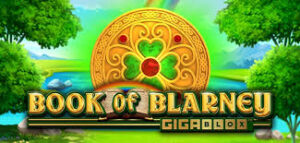
Old Skool Gaming: Relive the Golden Age of Classics!
Old school gaming brings a wave of nostalgia, reminding us of a golden era where games were more than just pixels – they were magical adventures. The simplicity and creativity of retro gaming continue to enchant players of all ages. From iconic titles to unforgettable memories, the charm of classic games remains timeless. In this post, we’ll dive into the rich history and cultural impact of retro gaming, bringing back the excitement of the past. Whether you’re a seasoned player or new to the scene, FB68 invites you to rediscover the classics that shaped gaming history.
Introduction to Old Skool Gaming
As we delve into the world of old skool gaming, we will unpack its definition, charm, and the impact it has had on the gaming industry as a whole. With an understanding of what constitutes old skool gaming, we can appreciate the evolution of technology and design in the gaming world.
What is Old Skool Gaming?
Old skool gaming refers to video games from the late 1970s through the early 1990s—an era characterized by the rise of arcade machines, the introduction of home consoles, and the emergence of iconic titles that are still revered today. These games often featured pixel art graphics, 8-bit soundtracks, and straightforward gameplay mechanics that challenged players in unique ways.
The essence of old skool gaming lies in its simplicity. Back in the day, developers focused on creating engaging gameplay rather than relying on high-end graphics or complex storylines. Games like “Pac-Man,” “Super Mario Bros.,” and “Tetris” epitomize this philosophy, offering addictive gameplay loops that hooked players for hours. As we traverse through the landscape of old skool gaming, we will see how these elements laid the groundwork for future game development.
The enduring appeal of retro games
The allure of old skool gaming spans generations, resonating with both those who grew up in the ’80s and ’90s and younger audiences discovering these gems for the first time. One reason for this enduring appeal is nostalgia. For many, playing a classic game evokes fond memories of their childhood—whether it was spending countless hours in arcades, gathering around the family television, or blowing into cartridges to make them work.
Moreover, retro games exemplify timelessness. They often possess an inherent charm that’s difficult to replicate in modern titles. The pixelated graphics, catchy chiptune music, and straightforward controls create an inviting atmosphere that welcomes players of varying skill levels.
Additionally, old skool gaming encourages a sense of community. Players bond over shared memories, trade tips and tricks, and come together during events and conventions celebrating retro gaming culture. This camaraderie adds depth to the experience, making the world of old skool gaming not just about the games themselves, but also about the connections we forge along the way.
Classic Games That Defined Old Skool Gaming
As we turn our focus to classic games that defined the era of old skool gaming, it’s essential to understand how these titles shaped the path of the gaming industry. From pioneering genres to establishing trends, these landmark titles created ripples that continue to resonate in modern gaming.
Top iconic games from the golden age
When we think of old skool gaming, certain titles instantly come to mind. Among these, “Pac-Man” stands out as a cultural phenomenon. Released in 1980 by Namco, it introduced a new approach to gaming with its maze-chase format and non-violent gameplay. “Pac-Man” became a symbol of the gaming revolution, paving the way for future arcade hits while spawning merchandise, cartoons, and even a hit song.
Another iconic title is “Super Mario Bros.” debuting in 1985 on the Nintendo Entertainment System (NES). This game changed the platformer genre forever, introducing players to a vibrant world filled with power-ups, hidden secrets, and memorable characters. Mario’s adventures not only helped revitalize the gaming industry following the crash of 1983 but also established Nintendo as a powerhouse in the market.
Then there’s “The Legend of Zelda,” released in 1986, which redefined adventure gaming. Its open-world design, intricate puzzles, and compelling storytelling set a new standard for immersive gameplay. It encouraged exploration and problem-solving, influencing countless titles that followed in its footsteps.
These iconic games are just the tip of the iceberg, but they serve as excellent exemplars of how innovation during the golden age of gaming laid the foundation for the diverse gaming landscape we enjoy today.






